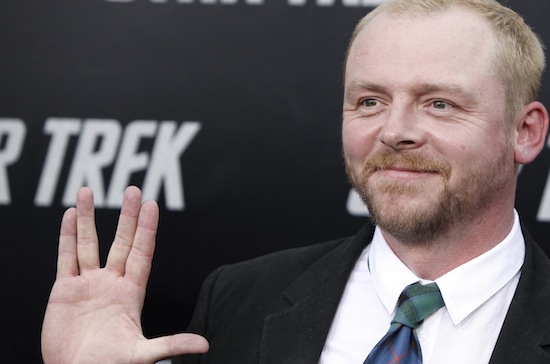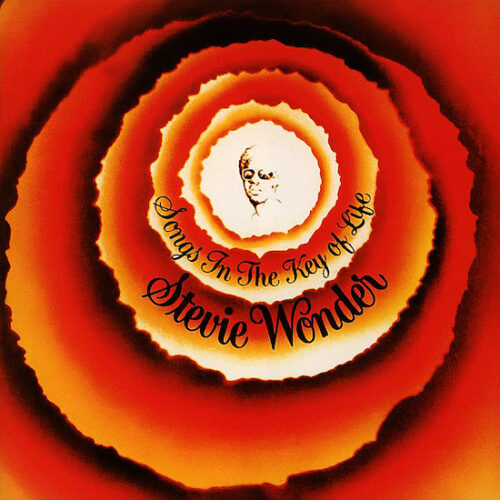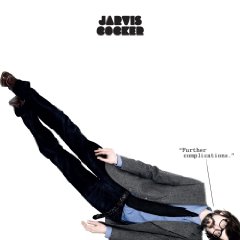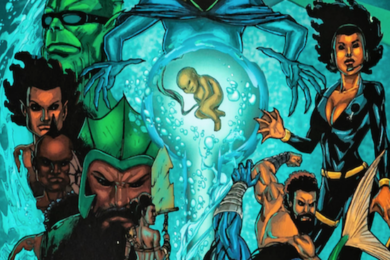It seems almost inevitable that Simon Pegg – creator of Spaced, writer of Hot Fuzz and The World’s End, Scotty in Star Trek – would eventually turn against the very people that gave him life. There are few celebrities more indelibly associated with the massive rise in popularity of what tends to get called ‘Geek Culture’ than Pegg, whose way-ahead-of-its-time sitcom Spaced basically prophesied an era when it would be OK for adults to sit in the pub and talk about Captain Marvel while wearing T-shirts with Boba Fett on them. He is a beloved figure in genre circles, attending Comicon, proselytising for comic books and dropping references left right and centre to all manner of nerdy ephemera.
But it’s an association that looks like it might be starting to rankle, if his interview in the Radio Times this week is anything to go by:
"Sometimes (I) feel like I miss grown-up things. And I honestly thought the other day that I’m gonna retire from geekdom. I’ve become the poster child for that generation, and it’s not necessarily something I particularly want to be. I’d quite like to go off and do some serious acting."
Pegg, it seems, has had enough. The action figures are going back in the box, the old issues of 2000ad are going down the tip and the Boba Fett T-shirt is getting burned on a big old pyre. It’s hard not to sympathise to some extent. Any artist gets tired with being associated with the same old genres and conventions. "There’s always been a dance element to my serious acting" says Pegg, before strutting off into the sunset, quill in hand. No, if that’s the case, if Pegg really is done with the spaceships and the spandex and the dinosaurs with guns mounted on them, then fair enough. No hard feelings.
But what’s this now?
"Before Star Wars, the films that were box-office hits were The Godfather, Taxi Driver, Bonnie And Clyde and The French Connection – gritty, amoral art movies. Then suddenly the onus switched over to spectacle and everything changed … I don’t know if that is a good thing."
Oh God, Simon, no. Not this bunch of horse shit again…
"…Obviously I’m very much a self-confessed fan of science fiction and genre cinema but part of me looks at society as it is now and just thinks we’ve been infantilised by our own taste. Now we’re essentially all consuming very childish things – comic books, superheroes. Adults are watching this stuff, and taking it seriously.
It is a kind of dumbing down, in a way, because it’s taking our focus away from real-world issues. Films used to be about challenging, emotional journeys or moral questions that might make you walk away and re-evaluate how you felt about … whatever.
Now we’re walking out of the cinema really not thinking about anything, other than the fact that the Hulk just had a fight with a robot."
Putting aside the fact that I’m really not that keen on being told what I’m thinking when I leave a cinema – and c’mon, if the Hulkbuster fight was all you were thinking of when you left Age Of Ultron then you were probably asleep for a good proportion of it – it seems that what we have here is a case of a frustrated man worried that maybe he’s wasted his life on shiny geegaws. And maybe he has. I cannot speak for him. But as someone who has spent a large proportion of his life absorbing superheroes and science fiction across a whole variety of media, someone who tells the time by using a Lego Batman alarm clock, I can tell you Pegg, that all that – all of it – is tripe.
For a start with there’s a confusion of terminology that you’d have thought Pegg would be savvy enough to avoid. Certainly the accusation that ‘comic books’ are somehow ‘childish’ is the sort of brazen idiocy that makes me strongly suspect that this is a misquote. What, all of them? Little Nemo In Slumberland and From Hell and Shade: The Changing Man and Through The Woods and RAW and The Incal? No, they’re not are they. That’s just silly. There’s such an enormous amount of difference between all those that that can’t be what he means. Again we’ll give Pegg the benefit of the doubt here. What he’s talking about is the phenomenon of the modern franchise based blockbuster. Blockbusters with explosions and robots and superheroes in them, all of which fall under the shadow of the giant mouse’s head. Or whatever the hell the Warners logo is meant to be. You may have noticed that these sorts of film are quite popular these days.
And, surprise surprise, it all started with Star Wars.
How dare you Star Wars!? How dare you frighten directors out of making ‘art movies’?! Art movies like… The Godfather, and… y’know…Taxi Driver and all that serious stuff that means something about… "whatever".
This is a very tired argument and a very wrong headed one, but it is parroted with some regularity. Star Wars was such a massive hit that it changed Hollywood’s perception of what constituted box office success, yes (although you could argue that it was actually Jaws that did that) but its takings certainly didn’t ensure that only films with spaceship battles in them could ever be financed ever again. Despite how much that would have improved Beaches. Indeed only a few years after Star Wars there was an eruption of intelligent, independent, non-explody cinema, with directors like Jim Jarmusch and David Lynch coming out of the woodwork, and auteurs such as Wim Wenders creating beautiful, idiosyncratic and thought provoking films. Sure, Star Wars may have put the kibosh on a few of the more mainstream pictures (although it could be argued that escalating director egos and cocaine addiction had a pretty big effect, too), but you’re never going to stop people wanting to make thought provoking cinema, any more than you’re going to stop people wanting to see it.
Which brings us neatly to the second point. That concerning the audience being ‘infantilised’ by their ‘own taste’. A process that is distracting them away from ‘real world issues’. Well fuck you very much Pegg. Do you mean to tell me that having just watched the Tories swoop into power like wraiths on wings, and being faced every day with environmental destruction and poverty and horror mounting on shrieking horror, that I am somehow being irresponsible by going to watch a film with a gun-toting space raccoon in it? Believe me, Pegg, the audience that goes to these films is deeply aware of ‘real world issues’. Indeed those very same ‘issues’ are more than likely part of the reason why said films are such big hits in the first place.
However it is too simple to say that superhero films and big blockbusters are pure escapism. Look at the recently released Mad Max: Fury Road, which even aside from the backdrop of all-too-close environmental annihilation, managed to deliver such a stinging nad kick to the patriarchy that ‘men’s rights’ activists decided to have a massive group bawl about it. The enemy of my enemy is my friend, and if you can piss those fucking dingbats off then you’re clearly on to a good thing. Even Avengers: Age Of Ultron, on the face of it the billion-dollar equivalent of watching a ten year old smashing his toys together in the back garden, made some points about collateral damage and civilian casualties on top of all the usual heroic bluster. Sure, it wasn’t enough to stop the movie being to all intents and purposes an advert, but it gave it some solid grounding and ensured that you weren’t just "really not thinking about anything" after it was over.
At the heart of Pegg’s argument also lies the patronising assumption that people can’t be trusted to view what they want. That continued exposure to images of Batman punching The Joker in the crackers is somehow leading to a mass shedding of IQ points. Is it good to just watch these same kinds of films all the time? Probably not. Having worked in retail for years now, I can confirm that there are customers who exhibit no variety in what they watch at all (usually horror fans). However they are a rather sad minority. Much of the viewing audience these days is ruthlessly omnivorous. The popularity of the modern franchise based blockbuster has very little to do with an imagined idiotic audience and more to do with the ridiculous price of cinema tickets. Money is tight, so spending £16 or more to watch the latest Woody Allen isn’t going to cut it for a lot of people. If it’s going to cost an arm and a leg then why not spend the money on something that you know is going to take full advantage of the size of the screen and the massive speakers? With the rise of Netflix and living room entertainment systems people are saving the quieter films for when they get home after work. It isn’t like spectacle started its evil tyranny the moment George Lucas yelled "Cut!" either, it’s been an essential part of the medium since its inception. The people going to enjoy these films are taking part in a long standing cinematic tradition. They want to be taken somewhere else.
But aside from all this, Pegg’s argument completely misses out on a very important facet of the "generation" that he’s become a "poster child" for. Over the last few years, and especially since the more-powerful-than-a-locomotive rise to prominence of superhero related films, geek culture has been doing an extraordinary amount of growing up in public, desperately trying to shake off the image of the socially awkward, change fearing, green-lantern-T-shirt-wearing mouth breather that has clung to it for so long. And as a culture it has made incredible progress. I’ve watched the demographic in the shop I work in change beyond recognition in the last few years, and it’s still changing all the time. People of colour, women and young girls, members of the LGBT community, they are all buying comic books and model kits and DVDs and looking to engage with this rich, fun kind of entertainment. It’s not easy, and it seems a day doesn’t go by without some kind of controversy erupting from the keep-nerds-white-and-male department – the undignified shit-fit over Mad Max being just the latest example – but it is slowly working, and making the whole of geekdom a more tolerant, fun place to be for everyone who wants to join in. In his rush to condemn the culture that spawned him Pegg has made the mistake of thinking that just because these latest blockbusters aren’t ringing their hands over ‘serious issues’ they are somehow apolitical, whereas the culture that they emerge from, without which these films would not exist – without which Simon Pegg would not have a career – is one of the most committed to equality and tolerance that I’ve ever known. And if that constitutes being ‘infantilised’ then pass the 3D glasses and bring on Guardians Of The Galaxy 2.


















